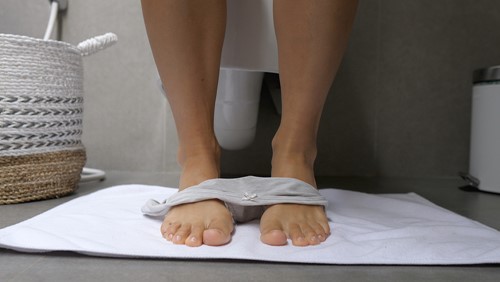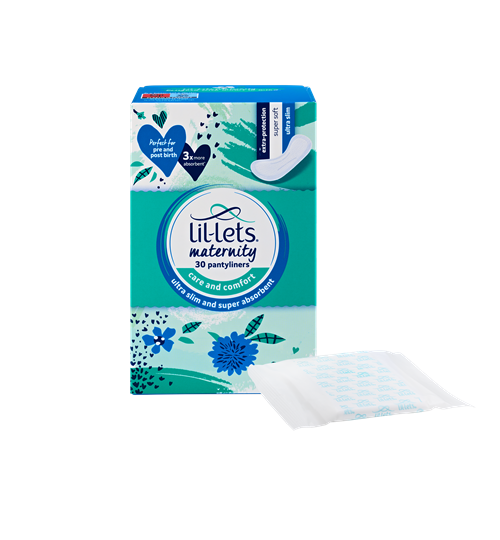First lesson: pregnancy incontinence is way more common than you might think!
Pregnancy is a beautiful journey full of excitement and anticipation, but it's also important to be aware of some of the challenges that may come along with it. One of those challenges that many women don't like to talk about is incontinence.
Urinary incontinence is unintentionally losing urine and we often associate it with getting older. However, ‘stress incontinence’ is a really common form of incontinence to affect women during pregnancy. It’s when you leak a little urine when you laugh, sneeze, cough, run, jump or even lift heavy things.
There are are several different types of urinary incontinence, each with a different characteristic, here we list the different types of urinary incontinence.
Stress Incontinence: Leakage of urine during activities that increase abdominal pressure, such as coughing, sneezing, laughing, or exercising. Often caused by weakened pelvic floor muscles or damage to the sphincter muscle, which can result from childbirth, surgery, or aging.
Urge Incontinence: A sudden, intense urge to urinate followed by an involuntary loss of urine. Usually caused by an overactive bladder, which can result from nerve damage, neurological conditions, or bladder inflammation.
Overflow Incontinence: Frequent or constant dribbling of urine due to a bladder that doesn't empty completely. Most likely caused by an obstruction of the bladder outlet, or by weak bladder muscles, which can result from conditions such as, diabetes or spinal cord injuries.
Functional Incontinence: Urine leakage due to physical or cognitive impairments that prevent reaching the bathroom in time. Can result from conditions such as arthritis, mobility issues, or dementia.
Mixed Incontinence: A combination of stress and urge incontinence, this can result from multiple underlying issues that cause both stress and urge symptoms.
As many as two-thirds of women with ‘stress incontinence’ also experience ‘urge incontinence’, which is caused by an overactive bladder. You get the sudden urge to go, even though your bladder may nearly be empty and, as a result, leak before you can get to the bathroom. It’s frustrating, we know…
Stress incontinence during pregnancy is caused by the growing uterus resting on the bladder and its supporting ligaments, causing the ligaments and surrounding muscles to stretch. When those structures become more relaxed, they're less effective at supporting the bladder, which in turn can lead to bladder weakness.
Another cause of stress incontinence during pregnancy is the hormone 'Relaxin' that make your tissues and joints more elastic and ready for delivery. This hormone can weaken the muscles that control the release of urine from your bladder and this stops them from working correctly.
Constipation, which is also common in pregnancy can also put a strain on your pelvic floor and lead to stress incontinence.

After you give birth to your baby, your pelvic floor muscles stretch and weaken even further. You may also experience increased bladder leaks and weakness immediately after birth if you had an epidural as it makes it harder to know when you need to go. It’s worth remembering that it’s very common for new mums to experience some incontinence in the first year after having their baby.
How much you leak and how long this will last will depend on how you gave birth, what happened during labour and whether you had urinary incontinence problems during pregnancy. For some women, the problem goes away within a few weeks of giving birth. For others, it can continue for some months.
If you're still experiencing leaks when you have your post-natal check at about six weeks after your baby is born, talk to your Midwife or doctor as incontinence is treatable.

To help manage slight bladder leaks try our Lil-Lets Maternity Pantyliners, designed with mums in mind, for both pre and post birth use. Our super slim and absorbent pantyliners ensure fluid is locked in and any odours are reduced.
Whether you are using them for light bladder leaks, discharge, or spotting, these pantyliners will leave you feeling fresh, protected and comfortably dry. Ideal for sensitive skin post birth, with a super soft cover, dermatologically tested, free from fragrance, dyes and chlorine bleach.
Lil-Lets Maternity Pantyliners Lil-Lets Maternity Intimate WipesThe pelvic floor is a set of muscles, ligaments and tissues that stretch across your pelvic bones; they support your pelvic organs which include your uterus, vagina, bladder and bowels.
During pregnancy strain can be placed on the pelvic floor leading to urinary incontinence regardless of how your birth goes, or even if it’s a caesarean, your muscles can be seriously challenged by simply being pregnant!
Taking a few minutes every day to do exercises can help strengthen the pelvic floor and these movements should be started in the early stages of pregnancy and as soon as you feel comfortable after the birth of your baby. If you’re struggling with stitches then you can do the exercises lying down to start with and until you feel comfortable.
These exercises can be done pretty much anywhere, and the best part is, only you will know you’re doing them!
Try out this simple pelvic floor exercise:
NEVER be tempted to do your pelvic floor exercises when on the toilet urinating, as stopping the flow mid-stream could lead to the bladder not being completely emptied and urinary tract infections being contracted.
For more pelvic floor exercises talk to your Midwife or GP as they’ll be able to tailor exercises based on your needs.
It's a lot more common than you would think, with studies showing that around 30-50% of pregnant women experience some form of urinary incontinence.
Whilst you may not be able to fully prevent incontinence in pregnancy these tips may help.
For most women, incontinence is temporary and resolves after childbirth once the body has had time to recover. However, some women may continue to experience incontinence postpartum.